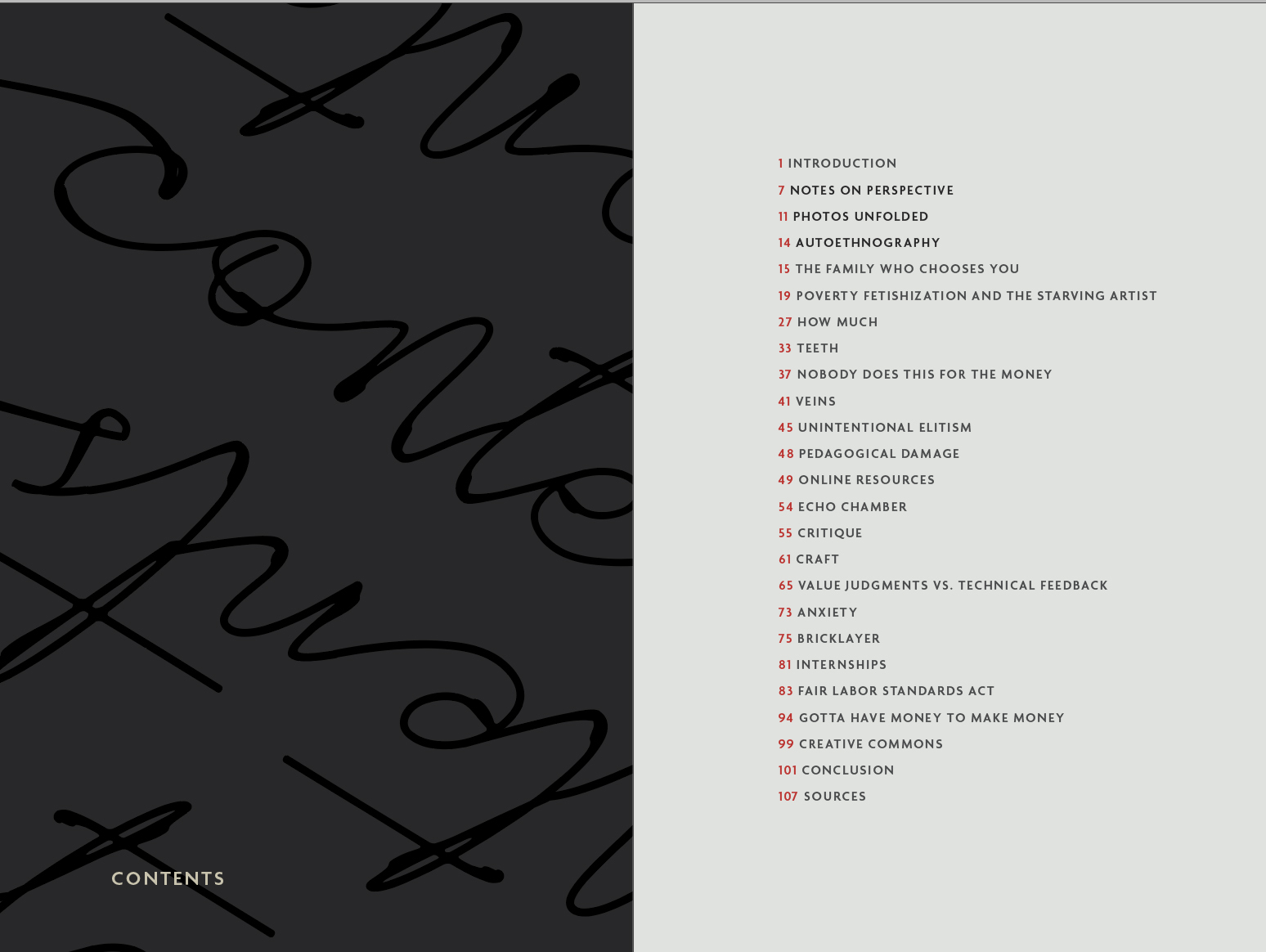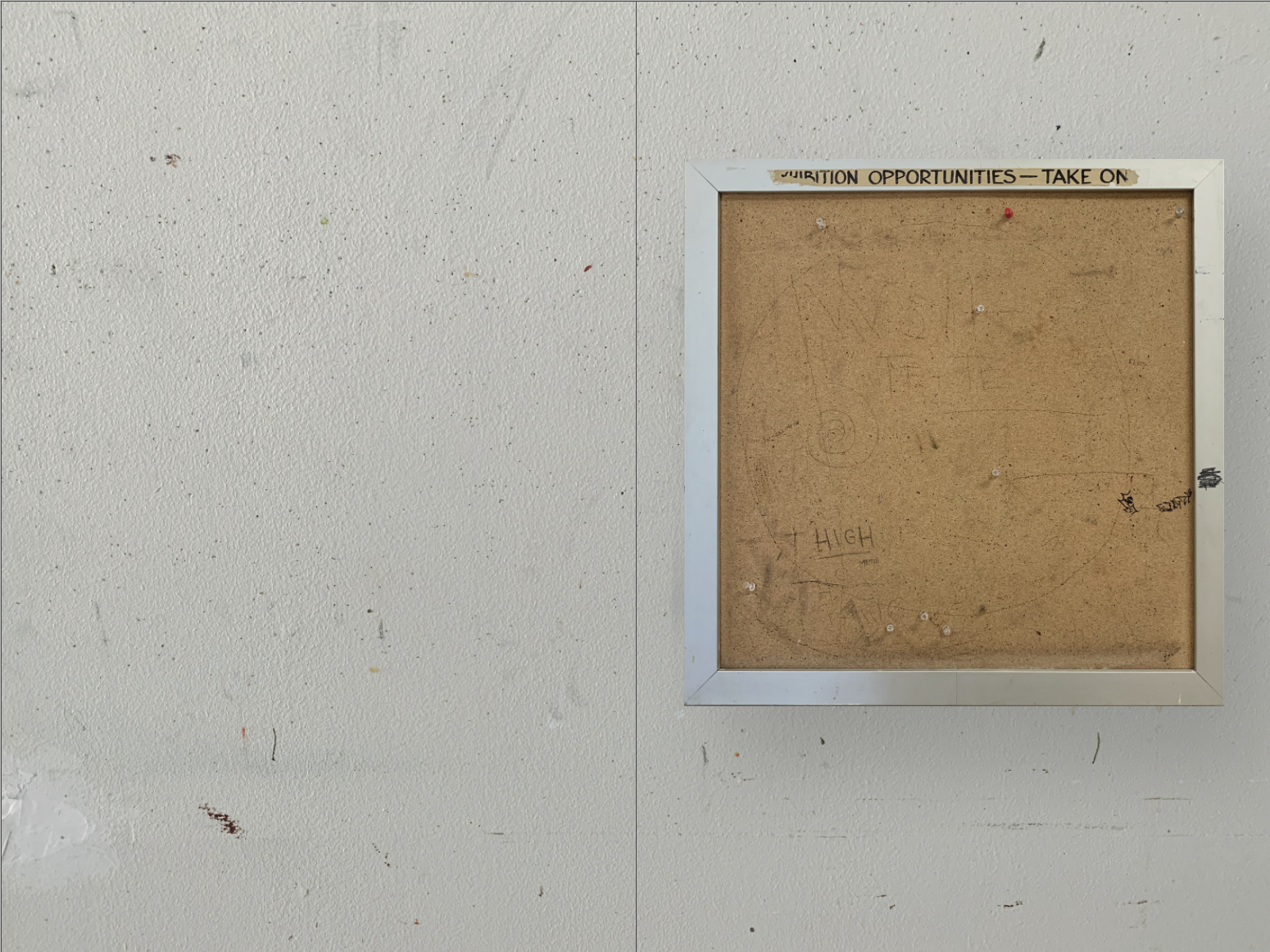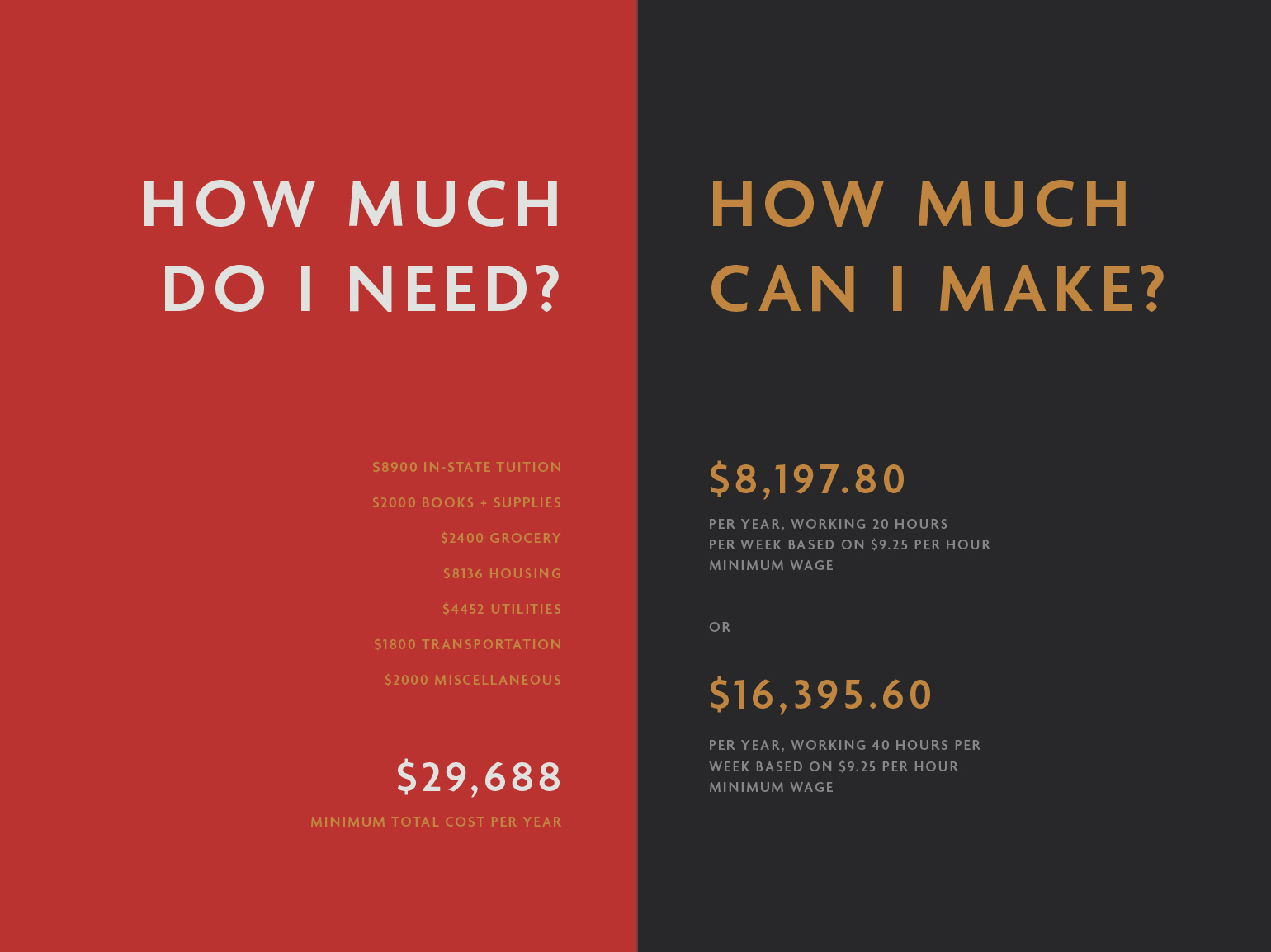The fetishization of low socioeconomical status is rife in both the art world and academia. As a result, art and design faculty may be less aware and therefore less empathetic to gaps in knowledge that may result from a student’s lack of exposure to social and academic norms due to economic status. This work deals with assumptions. Privilege and poverty elicit assumptions. College and classism elicit assumptions. Assumptions about what it is to be a designer. Assumptions about what a young designer’s goals might be. I attempt to illustrate the reality of these assumptions, biases, and the subsequent effects on the student’s progress as it pertains to social and economic mobility in conjunction with graphic design education. I use self-reflection to explore anecdotal and personal experience in order to connect it to wider meanings and understandings. My intention is to help prepare students for a system that is not fair. My hope is that this text may act as a starting point from which to navigate the messy and imperfect systems that are graphic design and higher education.






